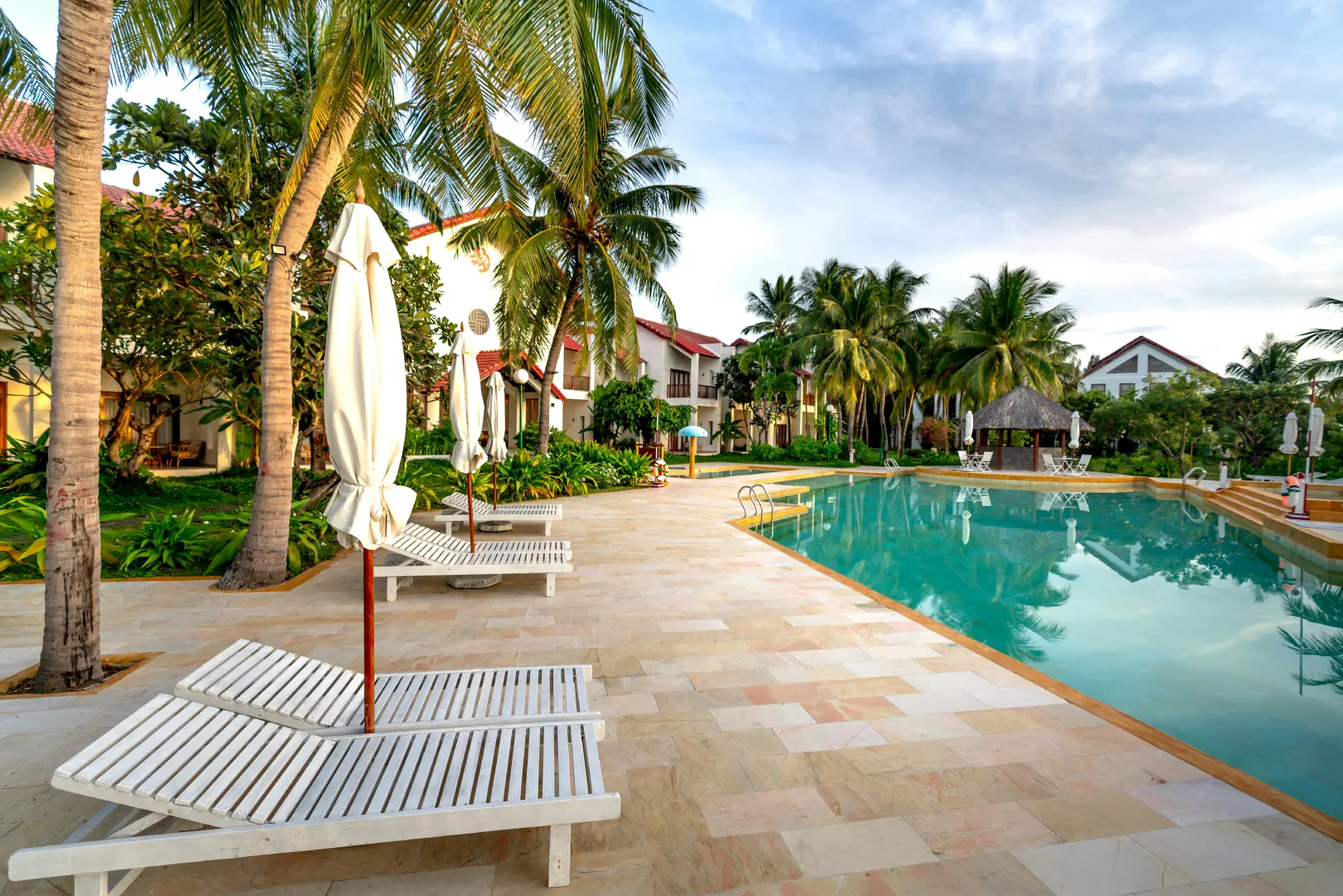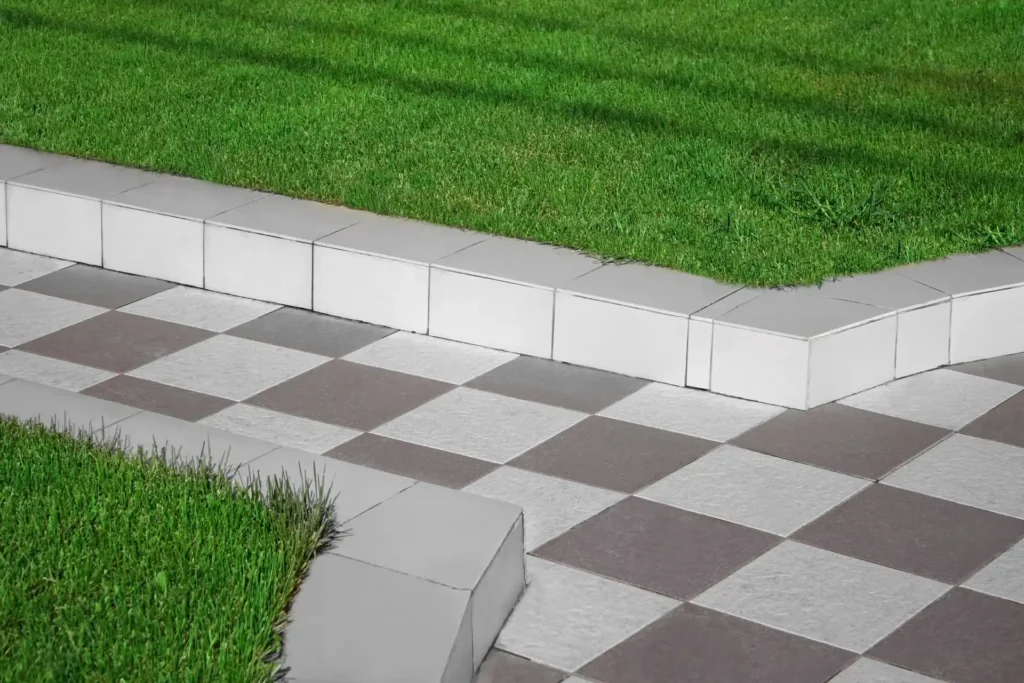
Porcelain pavers are quickly earning their reputation as a first-class option for patios, pool decks, driveways, and any outdoor space where long-lasting beauty matters. People love them because they combine sharp design with serious muscle—they’re tough enough to handle heavy foot traffic, Florida’s sun, and whatever life throws at them. Plus, the range of styles is about as broad as you’ll find anywhere.
Unlike the usual suspects in outdoor paving, porcelain pavers bring together top-shelf durability, almost no maintenance, and enough design flexibility to fit any project style—classic, modern, or anything in between. That’s why professionals and homeowners alike are swapping out old pavers for porcelain in both new builds and renovations.
When it comes to expert installation in Boca Raton, Broward, Palm Beach, and beyond, you want folks who know what they’re doing. Craft Pavers has a long track record of delivering flawless porcelain paver installations, setting the standard for quality outdoor spaces done right the first time.

Porcelain pavers are outdoor tiles crafted from highly compacted clay, fired at extreme temperatures—think hotter than your oven will ever get. This process creates a product that’s dense, sturdy, and practically impervious to water. For outdoor spaces, that means you don’t have to worry about stains, fading, warping, or even the Florida rain and heat doing any damage.
One of the standout benefits is how porcelain pavers shrug off stains. Whether you drop BBQ sauce during a family cookout or have kids tracking in who-knows-what from the yard, a quick rinse usually brings them back to new. They’re also resistant to mold and mildew, so you won’t find green patches creeping up, even in humid climates.
If you’re dealing with freeze-thaw cycles, especially in areas prone to large temperature swings, porcelain pavers don’t crack up under pressure. They outlast traditional materials, staying true to their color and integrity year after year—so your investment doesn’t just look good, it also lasts.
Another reason they’re the talk of the town? Low maintenance. No sealing needed, no fancy treatments—just simple, regular cleaning keeps them gleaming. And when you want it all installed seamlessly, the team at Craft Pavers is well-versed in the nuances of working with this modern material, delivering professional results from start to finish.
If style is at the top of your list, porcelain pavers deliver. Modern manufacturing techniques make it easy for these pavers to look exactly like natural stone, rich hardwood, crisp concrete, or even classic slate—minus the headaches those materials usually bring. The designs aren’t just printed on top, either—they go all the way through, so color and texture last for years to come.
Stone-look porcelain pavers are perfect if you’re after a timeless patio that mimics travertine, bluestone, or granite without worrying about weathering or stains. Want that cozy wood deck look but none of the rotting or splintering? Go for wood-look porcelain options. They come with realistic grain, knots, and even the weathered feel, but you’ll never have to worry about termites or refinishing.
Concrete-look porcelain brings an ultra-modern edge, lending sleekness to pool decks, walkways, or outdoor kitchens—yet without the cracks or discoloration real concrete picks up over time. With so many color tones, plank sizes, and finish textures available, it’s simple to craft any vibe from Mediterranean retreat to Miami modern.
Ready for inspiration? See real projects and how these style options come together in our pavers gallery. Whether you want rustic outdoor charm or a clean, contemporary look, porcelain pavers offer the flexibility and visual punch to nail your vision—no compromises on durability.
Deciding between porcelain and concrete pavers? You’re not alone. Here’s the scoop: porcelain pavers win big on wear resistance, shrugging off scuffs, stains, and fading much better than concrete. The colors in porcelain go deep so they won’t bleach out in the sun or wear away in high-traffic areas—while concrete pavers often show their age over time.
Now, concrete pavers are generally less expensive upfront, making them a tempting choice for larger jobs or tight budgets. But remember: porcelain’s toughness means fewer replacements, minimal maintenance, and no annual sealing. Over ten years, the cost difference usually gets wiped out by savings on repairs and cleaning, making porcelain a value champion for the long haul.
When it comes to driving or parking, both can handle the weight. But porcelain’s high performance under pressure—literally—means less shifting, especially if installed professionally. Surface temperature is another factor: porcelain stays cooler than dark concrete in the sun, making it much more comfortable for bare feet around pool decks and patios.
Installing porcelain pavers isn’t quite the same as working with old-school brick or concrete slabs. The material’s strength and low absorption mean it demands careful prep and attention to detail. That’s why professional installation matters—a lot. Choose the right technique, and you’ll get a surface that lasts decades, keeps its shape, and looks sharp year after year.
For outdoor spaces, the installation method depends on your surface, design vision, drainage needs, and even the kinds of loads the area will see. Sometimes direct mounting is the ticket—especially on solid concrete bases. Other times, you need a pedestal system to raise your pavers, get a level surface, and let water drain away, which is handy on rooftops, balconies, or sloped ground.
When every detail matters—load limits, slip resistance, proper alignment—you want experts who know the rules and the right way to tackle the job. Local codes, manufacturer specs, and the unique challenges of Florida weather? That’s Craft Pavers’ bread and butter. Their extensive experience ensures compliance and peace of mind on any project. Want to dig deeper? See installation services for the details on getting it done right.
Not sure which approach is right? Consider your drainage, weight load, and surface evenness. Talk with a professional to ensure your project gets the installation it really needs.
Pool areas are about more than looking good—they need to be safe, stay cool under bare feet, and shrug off constant moisture and chemicals. Porcelain pavers tick all these boxes. Their dense, non-porous surface means water just beads up and rolls off, keeping the area slip-resistant and drastically cutting down on mold and algae.
Another perk: Unlike concrete, porcelain doesn’t soak up the sun’s rays to the point of scalding feet. Many options have light-reflective finishes that actively stay cooler on hot days, creating a comfortable spot for relaxing or entertaining. And with color and surface textures engineered right into the tile, fading and staining from pool chemicals is kept to a minimum.
But it’s not just tech talk—choosing the right porcelain paver style means you can blend aesthetics and safety without compromise. Textures, slip-resistance ratings, and color temperature all play a role. Up next, you’ll find practical tips for selecting textures and colors that stand up to Florida’s heat and humidity—while making your pool area pop for every backyard gathering.
Choosing the right coping isn’t just about looks—professionally installed profiles keep tiles secure, water-drainage efficient, and walking edges comfortable. Installers like Craft Pavers ensure every edge fits tightly and safely, matching coping style to the unique needs of your pool, stairs, or patio design.
Stick with gentle cleaners and non-abrasive tools—your porcelain pavers will reward you with years of low-maintenance beauty and performance, no matter the season.


Since 2019, hundreds of homeowners, like you, have trusted us to restore and rejuvenate their pavers. Join the 360+ satisfied clients who have experienced the difference our expertise brings. Once again, you can rely on us to make your outdoor spaces look stunning and inviting.
Don’t wait any longer to give your pavers the care they deserve. Our expert team is ready to restore your outdoor areas to their full glory. Whether it’s a patio, walkway, or driveway, let us enhance the beauty and durability of your pavers. Contact us now for a free consultation and let’s begin your journey to a more beautiful home exterior.